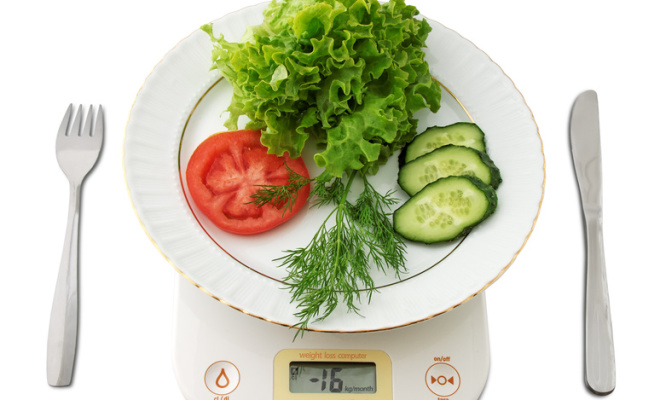
The benefits of a longer life
Benefits of Intermittent Fasting
Fat loss is great, but it isn’t the only reason to try intermittent fasting.
Intermittent fasting makes your day simpler.
I’m big on behavior change, simplicity, and reducing stress. Intermittent fasting provides additional simplicity to my life that I really enjoy. When I wake up, I don’t worry about breakfast. I just grab a glass of water and start my day.
I enjoy eating and I don’t mind cooking, so eating three meals a day was never a hassle for me. However, intermittent fasting allows me to eat one less meal, which also means planning one less meal, cooking one less meal, and stressing about one less meal. It makes life a bit simpler and I like that.
Intermittent fasting helps you live longer.
Scientists have long known that restricting calories is a way of lengthening life. From a logical standpoint, this makes sense. When you’re starving, your body finds ways to extend your life.
There’s just one problem: who wants to starve themselves in the name of living longer?
I don’t know about you, but I’m interested in enjoying a long life. Starving myself doesn’t sound that appetizing.
The good news is that intermittent fasting activates many of the same mechanisms for extending life as calorie restriction. In other words, you get the benefits of a longer life without the hassle of starving.
Intermittent fasting is much easier than dieting.
The reason most diets fail isn’t because we switch to the wrong foods, it’s because we don’t actually follow the diet over the long term. It’s not a nutrition problem, it’s a behavior change problem.
This is where intermittent fasting shines because it’s remarkably easy to implement once you get over the idea that you need to eat all the time. For example, intermittent fasting was an effective strategy for weight loss in obese adults and concluded that “subjects quickly adapt” to an intermittent fasting routine.
Diets are easy in the contemplation, difficult in the execution. Intermittent fasting is just the opposite — it’s difficult in the contemplation but easy in the execution.
In my opinion, the ease of intermittent fasting is best reason to give it a try. It provides a wide range of health benefits without requiring a massive lifestyle change.
Frequently Asked Questions, Concerns, and Complaints
I’m a woman. Should I do anything differently?
That said, I have heard that women may find a wider window of eating to be more favorable when doing daily intermittent fasting. While men will typically fast for 16 hours and then eat for 8 hours, women may find better results by eating for 10 hours and fasting for 14 hours. The best advice I can give anyone, not just women, is to experiment and see what works best for you. Your body will give you signals. Follow what your body responds favorably to.
I could never skip breakfast. How do you do it?
I don’t. Breakfast foods are my favorite, so I just eat them at 1pm each day.
Also, if you eat a big dinner the night before, I think you’ll be surprised by how much energy you have in the morning. Most of the worries or concerns that people have about intermittent fasting are due to the fact that they have had it pounded into them by companies that they need to eat breakfast or they need to eat every three hours and so on. The science doesn’t support it and neither do my personal experiences.
I thought you were supposed to eat every 3 hours?
You may have heard people say that you should have six meals per day or eat every 3 hours or something like that.
Here’s why this was a popular idea for a brief period of time:
Your body burns calories when it’s processing food. So the thought behind the more meals strategy was that if you ate more frequently, you would also burn more calories throughout the day. Thus, eating more meals should help you lose weight.
Here’s the problem:
The amount of calories you burn is proportional to the size of the meal your body is processing. So, digesting six smaller meals that add up to 2000 calories burns the same amount of energy as processing two large meals of 1000 calories each.
It doesn’t matter if you get your calories in 10 meals or in 1 meal, you’ll end up in the same place.
This is crazy. If I didn’t eat for 24 hours, I’d die.
Honestly, I think the mental barrier is the biggest thing that prevents people from fasting because it’s really not that hard to do in practice.
Here are a few reasons why intermittent fasting isn’t as crazy as you think it is.
First, fasting has been practiced by various religious groups for centuries. Medical practitioners have also noted the health benefits of fasting for thousands of years. In other words, fasting isn’t some new fad or crazy marketing ploy. It’s been around for a long time and it actually works.
Second, fasting seems foreign to many of us simply because nobody talks about it that much. The reason for this is that nobody stands to make much money by telling you to not eat their products, not take their supplements, or not buy their goods. In other words, fasting isn’t a very marketable topic and so you’re not exposed to advertising and marketing on it very often. The result is that it seems somewhat extreme or strange, even though its really not.
Third, you’ve probably already fasted many times, even though you don’t know it. Have you ever slept in late on the weekends and then had a late brunch? Some people do this every weekend. In situations like these, we often eat dinner the night before and then don’t eat until 11am or noon or even later. There’s your 16–hour fast and you didn’t even think about it.
Finally, I would suggest doing one 24–hour fast even if you don’t plan on doing intermittent fasting frequently. It’s good to teach yourself that you’ll survive just fine without food for a day.
That’s intermittent fasting in a nutshell. Be safe, have fun and make it a Heart, Health & Pocketbook moment!







